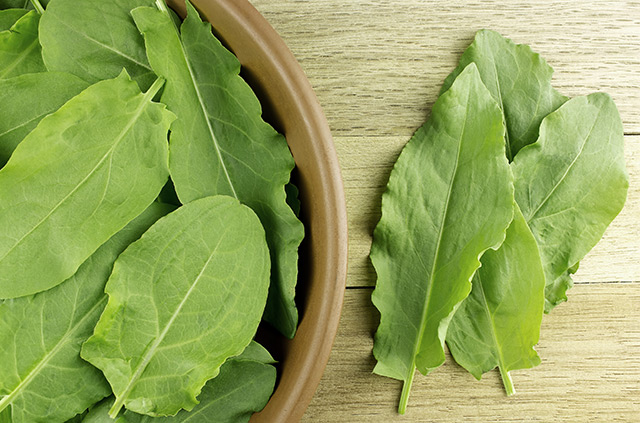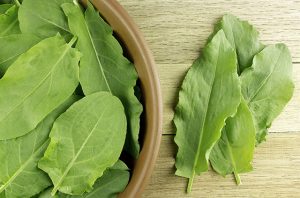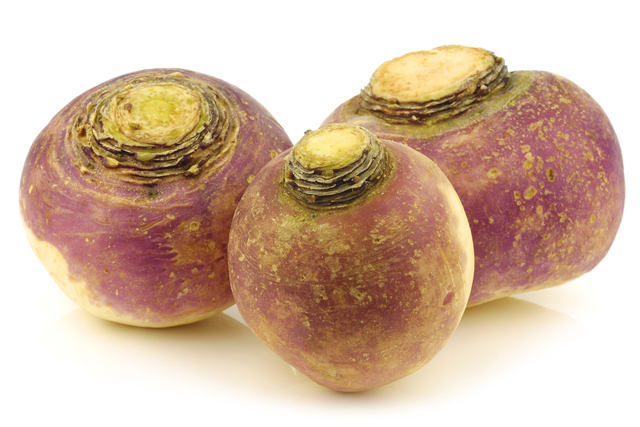Sorrel – sources, health benefits, nutrients, uses and constituents at NaturalPedia.com
07/22/2017 / By Earl Garcia

Sorrel is a popular salad green that resembles spinach. It is native to Europe and is a staple in Mediterranean cooking. The vegetable belongs to the same plant family as buckwheat and patience dock. According to an article posted on the Diet Health Club website, sorrel is a low-calorie, high-water vegetable that is especially beneficial for people trying to adopt a healthy diet. Sorrel comes in many names including spinach dock, sour grabs, and sour grass.
List of known nutrients
Like many popular salad greens, sorrel contains essential vitamins and minerals that promote the body’s overall health. An entry on Nutrition and You website enumerates the vegetable’s important nutrients such as:
- Calcium
- Copper
- Folates
- Iron
- Kaempferol
- Magnesium
- Manganese
- Myrcetin
- Niacin
- Oxalic Acid
- Pantothenic Acid
- Potassium
- Pyridoxine
- Quercetin
- Riboflavin
- Sodium
- Thiamin
- Vitamin A
- Vitamin B9
- Vitamin C
- Zinc
Medicinal uses for sorrel
Sorrel is highly valued for its beneficial effects on the digestive system. As with other green, leafy vegetables, sorrel is an excellent source of dietary fiber that facilitates the digestive process and relieves various issues such as constipation, diarrhea, bloating, and cramping as well as other more serious conditions. The vegetable’s high fiber content is also found to reduce the body’s blood cholesterol levels, which in turn lowers the odds of developing cardiovascular conditions such as atherosclerosis, heart attacks and strokes.
The vegetable’s high potassium content is also touted to improve cardiovascular health. Potassium contains vasodilating properties that relaxes the blood vessels and maintains a healthy fluid balance in the body. The essential mineral is also helpful in curbing cardiac stress, thereby lowering blood pressure levels. This prevents the onset of dangerous clotting and excessive strain on the cardiovascular system. As a result, this reduces the risk of coronary heart disease and other complications.
Sorrel is also found to promote the body’s overall blood circulation. The rich iron content in sorrel promotes red blood cell production and slashes the risk of anemia. Likewise, increased red blood cell production is associated with increased energy and faster healing. On the other hand, the vegetable’s rich vitamin C supply is found to increase the body’s white blood cell count, thereby fortifying the immune system against pathogens and foreign invaders.
In addition, the popular salad green contains powerful antioxidant components — such as polyphenolic compounds, flavonoids and anthocyanins — that combat the harmful effects of free radicals. The vegetable’s high antioxidant content is touted to lower the odds of developing cancer. Likewise, the organic compounds and anthocyanins found in sorrel are known to bolster diabetes management. On the other hand, sorrel boasts with a diuretic effect that rids the body of toxins, fats, salts and excess water. As a result, this cleanses the kidneys and improve the urinary system’s overall health.
Moreover, the vegetable’s amply supply of beta-carotene is touted to improve eye health and prevent the onset of macular degeneration and cataracts. Furthermore, sorrel can be used to treat various skin conditions such as dry skin and ringworms.
Body systems supported by sorrel
Sorrel supports the digestive, cardiovascular, and circulatory systems. Likewise, the vegetable is beneficial to the immune, urinary, and ocular systems.
Ways to use sorrel
As a popular salad green, sorrel can be incorporated in various salad recipes. Sorrel can also be made into flavorful sauces. An article posted on Bon Appetit website includes interesting recipes using sorrel.
Where to learn more
- Twenty herbs that are proven to be effective in treating cancer and combating side effects of chemotherapy and radiation!
- Natural methods to prevent and treat kidney stones
- Leaky gut syndrome – Naturally conquer this silent threat to health
- The mineral selenium proves itself as powerful anti-cancer medicine
- Top five herbs to fight cancer
Summary
Sorrel prevents cancer, cardiovascular conditions, and anemia.
Sorrel improves diabetes and wards off infections and eye diseases.
Sorrel supports the digestive, cardiovascular, and circulatory systems
Sorrel is beneficial to the immune, urinary and ocular systems.
Sources include:
Tagged Under: Sorrel





















